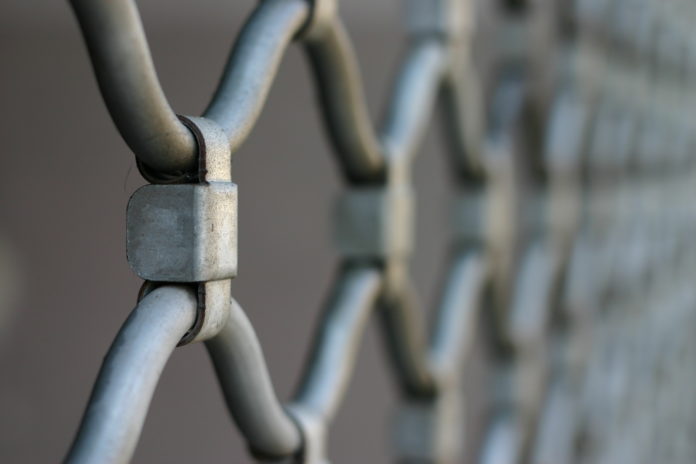In His Book, Allāh, Most High, has informed us that He is the Protector of the believers and that He protects the righteous; subsumed by this is the fact that He safeguards what is good for them both in this life and the Hereafter, and that He will not abandon them to another. Allāh, Most High, says,
| “Allāh is the Protector of those who have faith; He brings them out of the darkness into the light.” (Q2:257) |
| “That is because Allāh is the Protector of those who have faith and because the disbelievers have no protector.” (Q47:11) |
| “Whoever puts his trust in Allāh, He will be enough for him.” (Q65:3) |
| “Is Allāh not enough for His slave?” (Q39:36) |
Whoever establishes the rights of Allāh, Allāh will safeguard everything that will benefit him in this life and the next. Whoever wants Allāh to preserve him and tend to all of his affairs, let him first tend to Allāh’s rights on him. Whoever does not wish to be afflicted by anything he dislikes, let him not undertake what Allāh dislikes.
One of the Salaf would go to gathering after gathering saying,
| ‘Whoever wants Allāh to preserve his well-being, let him have taqwā of Allāh.’ |
al-ʿUmarī, the ascetic, would say to anyone who asked him for advice,
| ‘Be with Allāh, Mighty and Magnificent, in exactly the same way that you want Him to be with you.’ |
Ṣāliḥ ibn ʿAbdu’l-Karīm said,
| ‘Allāh, Mighty and Magnificent, says, “By My might and magnificence, I do not look at a heart that I know loves to obey Me, and does so diligently, except that I will undertake to protect his circumstances and keep him firm.”’ |
One of the earlier scriptures mentions,
| ‘Allāh, Mighty and Magnificent, says, “Son of Ādam, will you not tell me what gives you cause to laugh? Son of Ādam, have taqwā of Me and then sleep wherever you wish!”’ |
What this means is that when you establish due taqwā of Allāh then do not worry any more about those things that will be good for you: Allāh knows them better than you and He will direct them to you in the best of ways.
The ḥadīth of Jābir has the Prophet ﷺ saying,
| “Whoever wants to know the standing he has with Allāh, let him look to himself and see the standing that Allāh has with him. Allāh grants a person the same standing as Allah has with that person.” {1} |
This proves that Allāh’s concern with His servant and His safeguarding him is commensurate to the servant’s concern with the rights of Allāh, establishing them, tending to His limits and safeguarding them. Whoever’s goal is Allāh’s good-pleasure, seeking to draw close to Him, knowing Him, loving Him, and serving Him, will find that Allāh will treat him accordantly. Allāh, Most High, says,
| “Remember Me, I will remember you.” (Q2:152) |
| “Honour My contract and I will honour your contract.” (Q2:40) |
Moreover, Allāh is the kindest of the kind. He rewards a good deed tenfold and more. Whoever comes close to Him by a hand-span, He comes close to him by a cubit, whoever comes close to Him by a cubit, He comes close to him by a fathom, and whoever comes to Him walking, He comes to him running.{2}
Whatever a person is given is from his self, and nothing afflicts him that he dislikes except that it is as a result of his falling short in fulfilling the rights of his Lord. ʿAlī (RA) said,
| ‘The servant must place his hope in his Lord and his Lord alone, and he has nothing to fear save his sins.’ |
One of them said,
| ‘Whoever clarifies and purifies will be purified, and whoever mixes will be treated accordingly.’ |
Masrūq said,
| ‘Whoever diligently observes Allāh with respect to the notions and whims of his heart, Allāh will safeguard the motions of his limbs for him.’ |
There is much more that can be said about this but what we have mentioned thus far suffices and all praise is due to Allāh.
Ibn Rajab, Nūr al-Iqtibās
{1} Abū Yaʿlā #1865-2138, Ṭabarānī, al-Awsaṭ #2501.
| Ḥākim #1820 said it was ṣaḥīḥ but Dhahabī said, ‘It contains ʿUmar who is ḍaʿīf.’ Haythamī, vol. 10, pg. 77 said, ‘Its isnād contains ʿUmar ibn ʿAbdullāh, the freed slave of Ghufrah, who was declared thiqah by more than one scholar and ḍaʿīf by a group of scholars, the remaining narrators are those of the ṣaḥīḥ.’ Albānī, al-Ḍaʿīfah #5427-6205 ruled it ḍaʿīf. |
{2} As mentioned in a ḥadīth recorded by Bukhārī #7405 and Muslim #2687-2743 on the authority of Abū Hurayrah with the words,
| “Whoever draws close to me by a hand-span length I draw closer to him by a cubit. Whoever draws closer to me by a cubit, I draw closer to him by a fathom. Whoever comes to Me walking, I go to Him running.” |
The narration of Aḥmad #21374 on the authority of Abū Dharr adds,
| “And Allāh is more exalted and greater; Allāh is more exalted and greater.” |
Haythamī, vol. 10, p. 197, said the isnād was ḥasan.
(NOTE: If you want to build a strong and powerful relationship with Allah, check out Islamia TV, where you can watch Islamic speakers from across the globe deliver inspiring and motivational courses. Learn more at www.islamia.tv.)




















